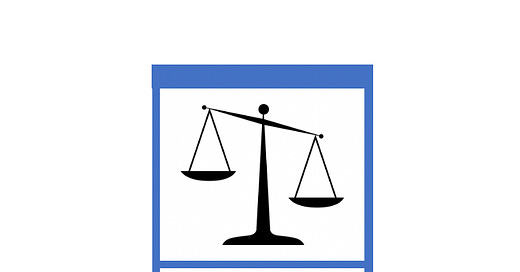Osterhaus Pharmacy Inc. v. UnitedHealth Group
A quick analysis of the first claim in Osterhaus Pharmacy's class-action lawsuit, and how the pharmacy's experience is a microcosm of UnitedHealth's power over healthcare more broadly.
Three days ago, a class action suit was filed against UnitedHealth. The allegations, brought Osterhaus Pharmacy, illustrate how hamstrung the healthcare system is. While that in itself is anything but news, the specifics of the suit are worth examining, because UnitedHealth is not the only one to blame. So too are our policymakers that have allowed UnitedHealth to dominate the market (and notably the Medicare and Medicaid system that the government itself guarantees money from).
While the healthcare system can be unbelievably difficult to dissect, this lawsuit gives a few concrete examples of market dynamics where UnitedHealth appears to be acting illegally, and where government-funded programs are likely being mismanaged.
This piece is only going to detail the first claim, but for those interested, you can find the full complaint here:
(Or on PACER at 2:23-cv-01944-RSL Osterhaus Pharmacy Inc v. UnitedHealth Group Incorporated et al).
The first claim in the lawsuit is about illegal tying. A tying arrangement is when a customer can only buy a good/service if that customer agrees to buy another specific good/service with it. In this case, the customer is the pharmacy, and it can only have access to UnitedHealth's Medicare Part D beneficiaries if it also agrees to pay a fee for the "opportunity" to provide other performance-related services.
In short, if a person is covered by UnitedHealth-managed Medicare Part D, a pharmacy cannot fill their prescription unless it also pays a fee for the ability to maybe provide that person with other services. None of which that theoretical person has asked for.
Antitrust law makes tying illegal when it is used to maintain or expand market power or if it blocks fair competition. And that general notion makes sense. If a person wanted to buy a Ticketmaster ticket to see Madison Beer, but was told they could only do so if they also agreed to pay a fee for access to concessions, it would feel wrong. What if that person just wanted to see the performance? They'd have no other way of seeing it because Ticketmaster is the only ticket seller. But they'd be forced to pay a fee for a separate service just because Ticketmaster said so.
As UnitedHealth manages more and more of the Medicare program—it currently has 24% of Part D—it is able to call the shots and force pharmacies (and other providers) into unfair contracts. Similar to Ticketmaster, United is a bottleneck, and charging a "toll" because it can.
I am not a lawyer, so I can't say what a judge will rule on this situation, but as someone who thinks critically about what a just system might look like, it certainly isn't this--where a profit-seeking company gets to call the shots on where government-funded beneficiaries can have prescriptions filled, while also determining what pharmacies must pay just for access to serve those people.




